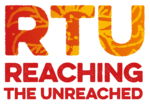Medical
Medical
To make medical care accessible to the rural poor we built a well equipped clinic at RTU. Free medicines and consultations are available to those in our Children’s Villages and in the surrounding area, (serious cases are referred to specialists). In addition to medical care we provide immunisation, dentistry, antenatal care and mother and childcare (MCC). 150 patients use the clinic everyday in the morning. In the afternoon our clinical team visits remote villages that do not have access to medical care up to 50 patients are cares for through this Mobile Clinic. During the thirty years RTU has existed we have eradicated leprosy and polio from this area.

Clinical Service


Our Physiotherapy Unit provides support for patients with long-term conditions such as cerebral palsy, as well as rehabilitation therapies and supervised exercise for individuals who are recovering from strokes or serious injuries. The sensory room in the Unit provides therapies for various physical and neurological conditions. Our aim is to get people back to being able to earn a living as quickly as possible.
Medical Check-up
All full-time school pupils have check-ups twice a year and preschool children three times a year.
Due to the increasing problem of HIV/ AIDS we also provide tests in our laboratory, help the patients get the free treatment the government provide and refer them to our counsellors.
HIV/AIDS
A diagnosis of HIV/AIDS often carries a heavy stigma in rural communities in South India, leading to social isolation and even destitution for families whose breadwinners are already struggling to work because of their illness.
The HIV+ children living in our Children’s Villages and hostels have often seen both parents become ill and die from AIDS. They benefit from a programme of regular testing, treatment and additional nutritional support to help them have the best possible chance of living a long and fulfilled life.
Their physical development and well-being are closely monitored. Each child has a twice yearly CD4 cell-count blood test and their haemoglobin is measured bi-monthly. Our specially trained nurses are available for them around the clock and we provide counselling and HIV health awareness for our older young people.
Our work is complemented by doctors from the Government ART Centre in Kanavilakku, where all our HIV+ children have regular consultations.
Hospice care
If our HIV+ children become unwell, we sometimes refer them to Jeevan Jyothi Hospice. This hospice provides in-patient treatment and palliative care, as well as an outreach programme for people living with HIV/AIDS. It is a place of care, compassion and tranquility, in keeping with our values and beliefs.
Raising awareness of HIV/AIDS
In 2022-23, 1822 members of our Self-Help Groups and groups of young men and women in local colleges received HIV/AIDS awareness training, designed specifically for them, at the local Jeevan Jothi Hospice, and on RTU’s main campus. This was followed up six months later with another training day to look at how they had been able to share what they had learnt in their communities.
Before the training, some of the women were afraid to have an HIV test, but after the training they went to the local hospital together for a test and for cervical cancer screening. One woman was diagnosed with first stage cervical cancer and subsequently received treatment, underlining for the women the importance of regular testing.
RTU continues to encourage the people who took part in the training to share their knowledge with their family members and wider communities to help ensure that the key messages reach as many people as possible.
